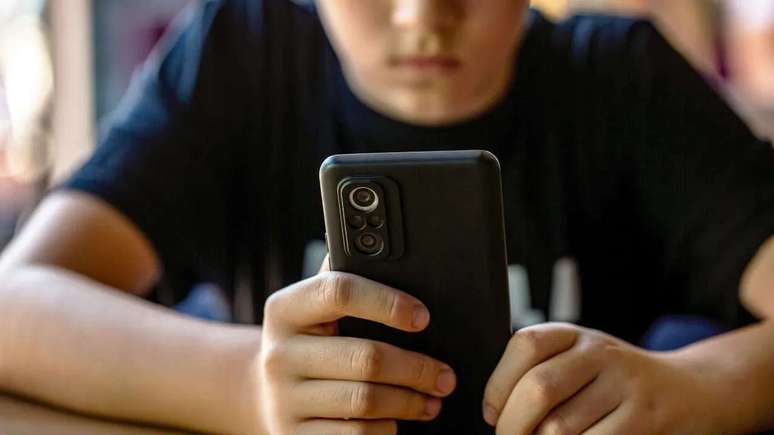The lack of concentration, the disorders in the learning process and social isolation can be signs of cell dependence in children
Recently, President Luiz Inacio Lula Da Silva (PT) sanctioned the law 15.100/25 which prohibits the use of cell phones in public and private schools. The measure generated a discussion on the impact of cell dependence In the mental health of children and adolescents.
According to the Tic Kids online survey Brazil 2023, conducted by the Internet Management Committee in Brazil, about 25 million children and teenagers between 9 and 17 years old were internet users in 2023 in the country. In the relationship between young people and the Internet, there is the use of social networks that have a remarkable impact on the health of this audience.
The psychologist Marcos Trati, a master in Puc-Sp clinical psychology, explains it feed Social networks are designed to stimulate hyperconneivity. “In the case of young people, we should observe whether the relationship with the virtual environment dilutes the experience of privacy and solitude, necessary in the formation of identity. When the search for the adolescent can know and be recognized if it is about publishing e By sharing, dependence on the digital world is not the root of the problem but a symptom of an emotional research to belong, “he says.
Impact of cell dependence on the development of children and adolescents
The absence of pauses in the use of the mobile phone can strengthen the tendency to assignment, making it difficult to manage the waiting capacity, which connects to the concept of Fomo (“Fear of losing“). That is, the fear of not being able to keep track of updates of the events. Furthermore, excess stimuli and the content presented at high speed can trivialize the experiences, reducing the ability to pay attention and the quality of the time on the platform .
“Social networks combine personalized content, autoplay and unpredictable prizes to maintain users’ attention. The combination of automatic repetition and obsessive pursuit can cause an altered state of consciousness, comparable to hypnosis, since the intense focus, united To psychological relaxation, it promotes the alienation of the outside world.
Mobile phone in the children’s routine
According to the psychologist, when all this hyperestimulation becomes habitual in the context of the child and teenagers, they move away from three important experiences in the development process: contact with the feeling of emptiness, the boredom and the emergence of creative free time. This is because, according to him, “it is in the absence of the other and the external stimuli that the child and the young man can discover the importance of the ability to be alone and the value of solitude, exploring the ability to entertain with them and with the company of the thoughts themselves.
In the evaluation of the expert, parents also have responsibility in the vice of children on mobile phones. “Highlighting the parental figures as possible agents of childhood addictions, some details appear. For example, a smartphone can be delivered to the hands of a child for the difficulty of the parents in dealing with cries and frustrations. In other cases, these parents are afraid of Saying “no ‘, while in some houses, an unconscious pact is built around fun, so that parents do not think of banning access to devices because they themselves are victims of electronic intoxications and do not want to lose or ask for this right” , underlines.
How to identify cellular vice in children?
To identify the deputy cell phone in young people, the psychologist guides parents to be present in the life of their children and attentive to changes in their behavior, as a new vocabulary, aggressive responses in the face of frustrations, concentration or hyperfoco disorders, learning process disorders , social isolation, among other negative consequences for the quality of life of children and adolescents. In case of problems, parents should try to guide young people on the risks of excessive use of social networks and interactions with strangers and, if necessary, seek expert help to face the problem.
Source: Terra
Ben Stock is a lifestyle journalist and author at Gossipify. He writes about topics such as health, wellness, travel, food and home decor. He provides practical advice and inspiration to improve well-being, keeps readers up to date with latest lifestyle news and trends, known for his engaging writing style, in-depth analysis and unique perspectives.









